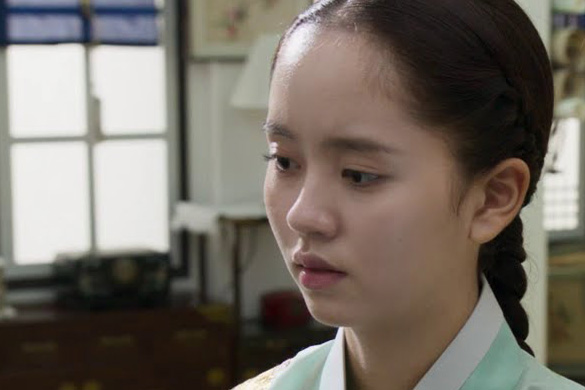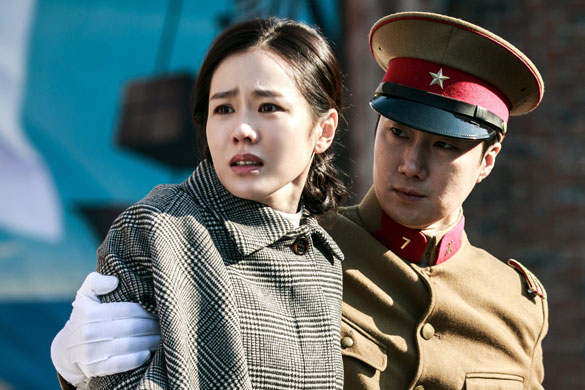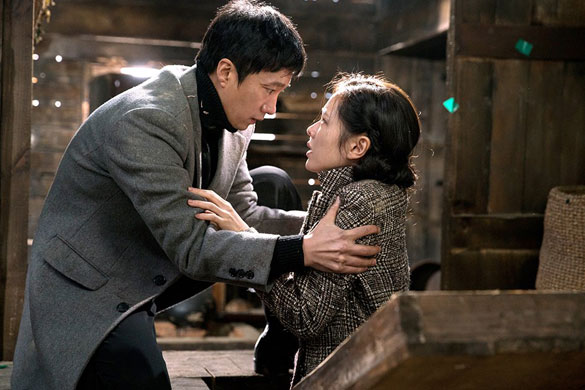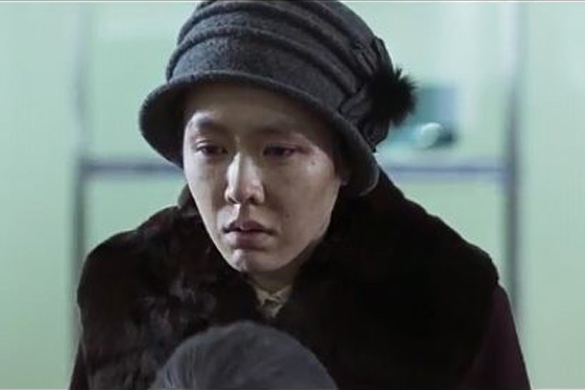
 |
||||
With The Last Princess, director Hur Jin-ho has stepped behind the camera for the first time since 2012’s Dangerous Liaisons to create a historical tale based on the true life story of Yi Deok-hye (played by Son Ye-jin), the last princess of Korea’s Joseon Dynasty and daughter of Emperor Go-jong (BaekYoon-sik).
Review: The Last Princess is the first cinema feature to depict the tragic life of Princess Yi Deok-hye. Inspired to make the film after watching a television documentary on her story, director Hur Jin-ho based his co-written screenplay on Kwon Bi-young’s novel 'Princess Deok-hye', in the process choosing to include fictional elements within the largely factual tale – a disclaimer to that end appearing at the very outset. Kim Jang-han, for example, didn’t exist in real life, Hur Jin-ho using the character and his search for the Princess in the 60s as a base to allow continuity over the depicted time frames of Deok-hye’s life, from youth to adulthood and eventually old age. The scenes prior to the appearance of the main title screen - 덕혜옹주 written on a plain black background - are fairly extensive, rather than just standing as a lead-in to the main narrative to the extent that viewers will likely have forgotten they haven’t seen a title until it finally appears. Jumping straight into aging journalist Jang-han’s desperate search for a person who he hopes can lead him to the whereabouts of Deok-hye, this first section soon steps back in time to detail Deok-hye’s life as a young child in the royal palace up to the poisoning of her father, Emperor Go-jong. Not only does Deok-hye’s happy and love-filled childhood stand (subsequently) in stark contrast to her angst-ridden adult life in enforced captivity in Japan, but it also serves to introduce most of the main characters – some as children, others as younger adults – underlining where their allegiances fall so that by the time they appear in the main plot thread we are already fully aware of who they are, thereby largely negating the need for further exposition that might jar the narrative flow.
Throughout the New Korean Cinema wave of the late 90s and early 2000s, director Hur Jin-ho was pretty much known as the king of beautifully understated melodrama. The majority of his most classic films – Christmas in August, April Snow etc. – were intensely personal, intimate tales of the love between two individuals and indeed the heartbreaking pain of separation. The Last Princess is ultimately a love story, too (whether or not it outwardly appears to be) but in this case it is not love between a man and a woman but instead the princess’ love for Korea, her country, and the pain of separation comes with her being prevented from returning home to help her people in the fight against occupation and oppression. There is also a feeling throughout The Last Princess that the relationship between Deok-hye and Jang-han is on the very edge of burgeoning into love but as this is largely a factual tale, and the character of Jang-han is fictional, that could of course never ultimately be. The above combined with the fact that a large part of The Last Princess’ narrative is focused on Jang-han and others trying to spirit Deok-hye out of Japan to Shanghai and away from evil pro-Japanese general Han Taek-soo (complete with secret meetings, bombings and indeed shootouts) may leave some feeling that the film is a step away from what we would classically expect from Hur Jin-ho, having more perhaps in common with recent large-scale stories set during the Japanese occupation of Korea – such as espionage tale Assassination. That’s not a criticism on my part (Assassination was one of the best films of 2015, after all), it’s just a statement of ‘it is what it is’ and really any such film set during the Japanese occupation is likely to be more expansive and have a greater level of action, rather than specifically screaming ‘This is classic Hur Jin-ho’. Ultimately, this larger scope combines well with the more personal detailing of Deok-hye’s heartbreakingly traumatic life to create an epic and gripping historical tale that ensures the atrocious treatment faced by the last princess of the Joseon Dynasty will not be forgotten.
So, what of the melodrama itself?
THE LAST PRINCESS (덕혜옹주) / 2016 / Directed by Hur Jin-ho
|
||||
All images © LOTTE Entertainment Review © Paul Quinn |
||||



